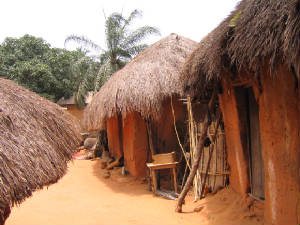|
|
 |
|
A progressive space for awareness of and dialogue on matters of culture, solidarity and partnership
work, faith, health, human rights, politics, religion, and economics.
|
 |
|
In light of our local, national, and global particularities, how can we optimally live in mutual love and respect for
and with one another? How can we structure local, national, and global society (civic and governmental) to reflect
shared ideals of justice where they exist and yet preserve diversity of opinion? Maybe we can't answer some of these
questions fully here, but to a large extent, perhaps we can offer reflections toward that end.
The rationale behind Purpose and Praxis takes the notion that everyone, as individuals and communities in
a global society, have voices that count, that we have a purpose to lay claim to in our own lives. Of course, this sounds
abstract, ideal and naive at best in its actual and current manifestation. But nonetheless, if we believe that all human
persons have equal worth and deserve a basic level of equal respect, then this view is a pillar for the enterprise
following in this site.
Never doubt that a small group of thoughtful commited citizens can change
the world - indeed it is the only thing that ever does.
-Margaret Mead
|
 |
|
Multimedia Presentation on Sudan genocide "First genocide of the 21st century"
A more modest example of power occurred in the mid 1980s when the UN Children's
Fund and the World Health Organization launched the 'children's health revolution,' which promoted a few simple, inexpensive
methods to reduce what was then forty thousand daily deaths of children under the age of five from curable infections and
malnutrition. Bread for the World drafted legislation that was introduced in Congress to support that campaign, and tens of
thousands of ordinary citizens began writing to their representatives in the US House and Senate, urging its passage. Congress
enacted the bill and continues to appropriate several hundred million dollars a year for child survival. In no small part
because of those letters, by the turn of the century ten thousand fewer children died each day. Much
remains to be done, but the progress shows how even so small a step as a letter from an ordinary voter to an elected official
can have the effect of saving lives.
-Arthur Simon in "How Much is Enough?", founder of Bread for the World, brother of former IL US Senator Paul Simon
|
|
 |
|

Village homes in Klikor, Ghana
Picture taken by Justin List, March 2004
|
 |
|
|
|
|
|
*
A site dedicated to promoting human flourishing for individuals and their communities
and a critical awareness of issues pertaining to health, peace, security, education, and development around the
world.
|
|
|
 |

